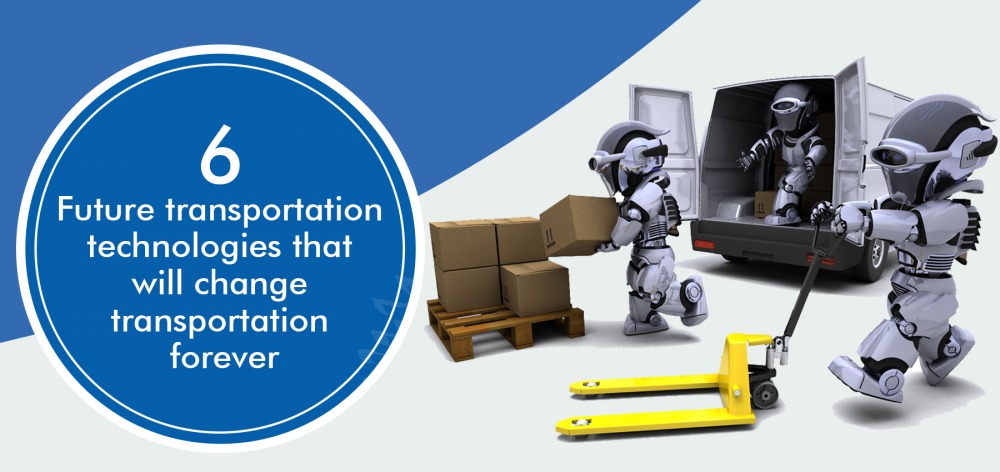6 future transportation technologies that will change transportation forever
From the last few decades, logistics has outgrown its pace and came a long way towards optimity by constant innovation. The urge to keep optimizing is the key to survive the competition by maintaining our edge. In addition to what already is on the table, more and more ideas are planning to take shape in the future and have the potential to redefine the impact of logistics on a business. So, let’s take a dive into what future of logistics looks like. Here we go,
1. Drone Deliveries
Drones can definitely be the face of the future logistics. Man travel is always more time consuming than a machine. Optimisation through automation should be the approach of the logistics players. Some businesses are already planning to switch to drones for their last-minute deliveries by cutting short the time consumed by the delivery service.
2. Warehouse Robotics
Robots are now a reality and definitely the future of logistics. With automation running the current scenario, humans urge to reduce man-efforts by deploying robots. They are going to take care of just about everything ranging from scheduling on machines, man-travel on the shop floor, and even all the clerk jobs like keeping accounts and records etc.
3. Driverless vehicles
Driverless vehicles, as the phrase suggests, are capable of operating on their own. They can take care of driving & navigating without any kind of human assistance. With electronic eyes, ears and sensory root of vision, it can change the whole experience of logistics by reducing the failure of deliveries by any kind of human error. Implementation will be a big challenge but still the foreseeable future includes its rightful and precise execution.
4. Incorporating the Web
One of the major game changer in any industry can be Internet of things. Being that the main tool to go about the technical revolution in logistics, the industry should know the gravity and importance of it. It enables managers to examine and understand ongoing activities in a factory or company, such as the performance of machines and equipment, energy consumption, ambient conditions, the status of inventory, and the flow of materials, at any given point in time. It also enhances in-transit visibility, thus bringing in order and harmony. Besides, IOT can also predict imminent problems and hurdles that may inhibit the development of many aspects of the logistics industry.
5. Augmented reality
The next big advancement in logistics tech can be Augmented reality wearables, that will be used to redefine the experience and time-consuming picking process in warehouses. Almost all the warehouses today, use a paper-based approach to stock picking, which is slow and error-prone. Augmented reality systems currently being offered by companies consist of a smart display glasses, a camera, a wearable PC and a battery pack. By using the augmented-reality system, workers can see the digital picking list in their field of vision through smart glasses. With the help of indoor navigation facility, workers can choose the most convenient route to a particular shelf/rack or any specific place and significantly reduce indoor travel and time.
6. “Uber” ization of trucking
One the safest and inexpensive method of freighting across long distances was a truck. While this has not changed a bit, the technological advances have seen a growing number of trucking companies experiment with Uber-like mobile apps. They have seen the benefits that ride-sharing has, hoping that it will turn into large-scale commercial operations.
Apps like Cargomatic are helping shippers to view the trucks that are nearby, providing convenient booking access by the app, through a direct click. The apps monitor has an access to online maps and GPS systems to position and updates the shipper; they also provide exact arrival times, which eliminates essential costs like paper, phones, faxes and the haggling of prices.
Thus, all the upcoming tech-projections of logistics industry will take the traditional experience to a whole new level. It is definitely going to optimize the logistics business and will make the process faster, efficient and less energy consuming.

